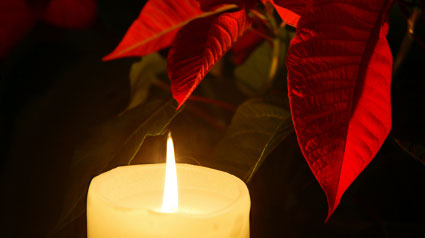


Christmas in Spain - Guide to Christmas in Spain traditions at Christmas in SpainChristmas in Spain is not as huge a commercial occasion as is the case in many other western cities. Christmas lights are usually lit in the main cities in the first week of December by which time the shops are fully stocked with Christmas supplies. Nothing like the UK where the end of summer marks the build up to Christmas. Most homes have a manger, like cathedrals and churches. These are complete with carved figures Christmas is a deeply religious holiday in Spain. The country's patron saint is the Virgin Mary. However Christmas in Spain is full of the usual Christmas festivities.
8th December - Christmas in Spain officially begins with the feast of the Immaculate Conception. 22nd December - All over Spain people never stray far from a TV or radio as
the Christmas lottery is drawn over a period of many hours. Everybody in Spain
buys tickets for this lottery in the hope of winning El Gordo (the fat one) 31st December - New Year's Eve is known as NocheVieja. It is a big celebration
all over the country with street parties and special nights in hotels and clubs
everywhere. Until midnight people tend to stay at home and on the stroke of
midnight it is traditional to eat 12 grapes, one on each stroke of the clock
to bring good luck for the new year. |
|
HOME - Site Map |
|
Copyright Christmas traditions Spain © Spain4uk 2002-2006. All rights are reserved . |
|
